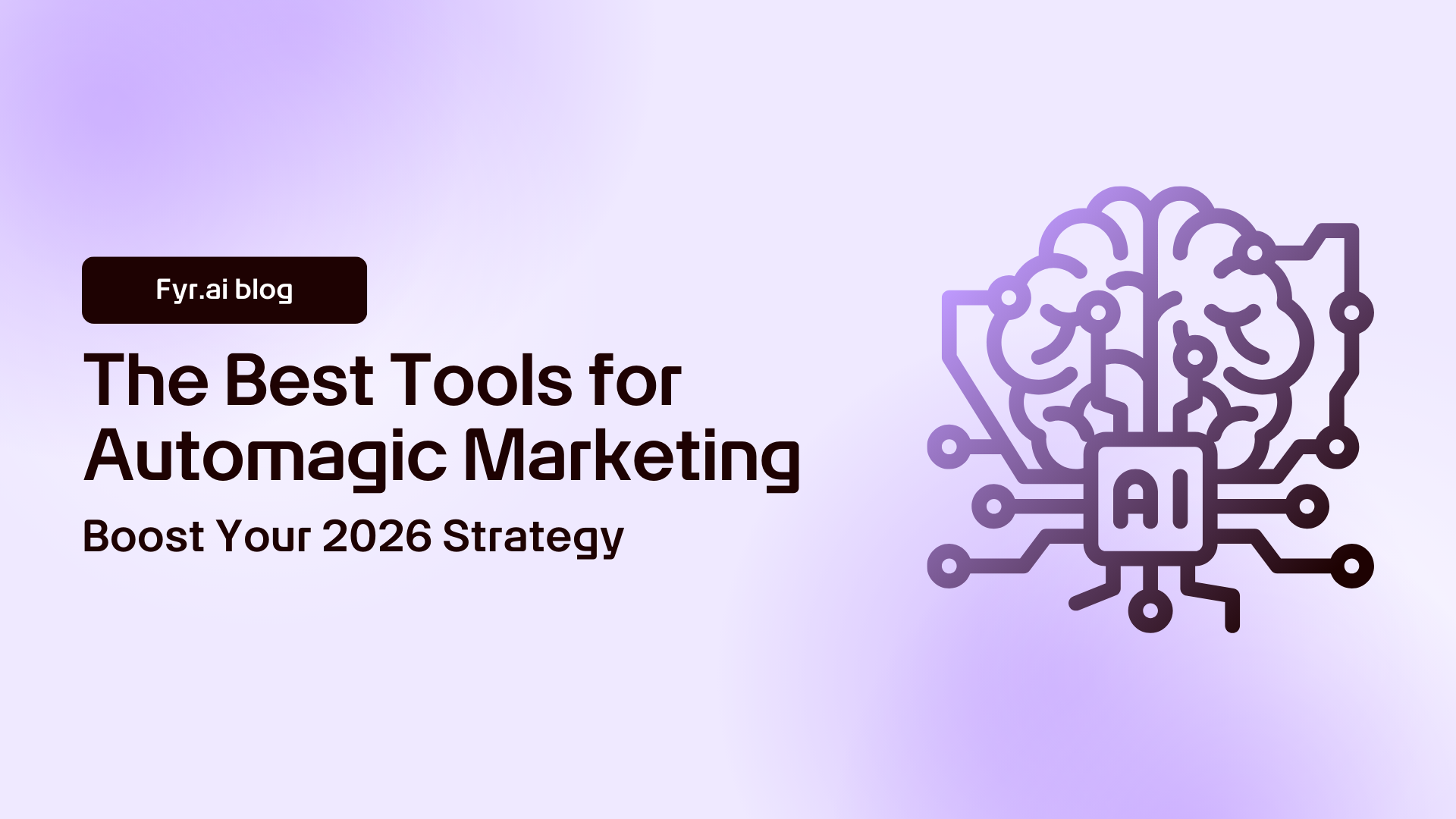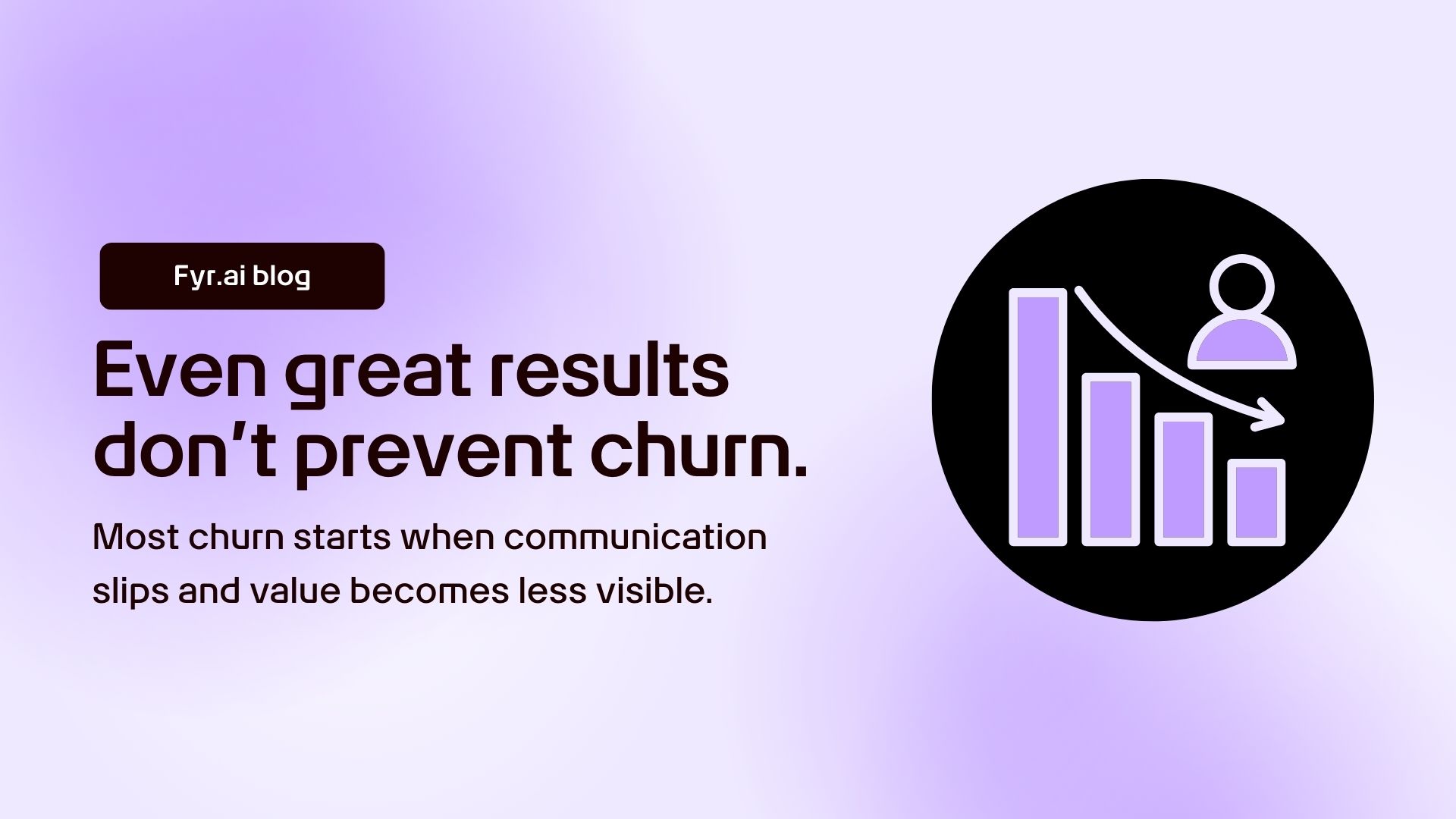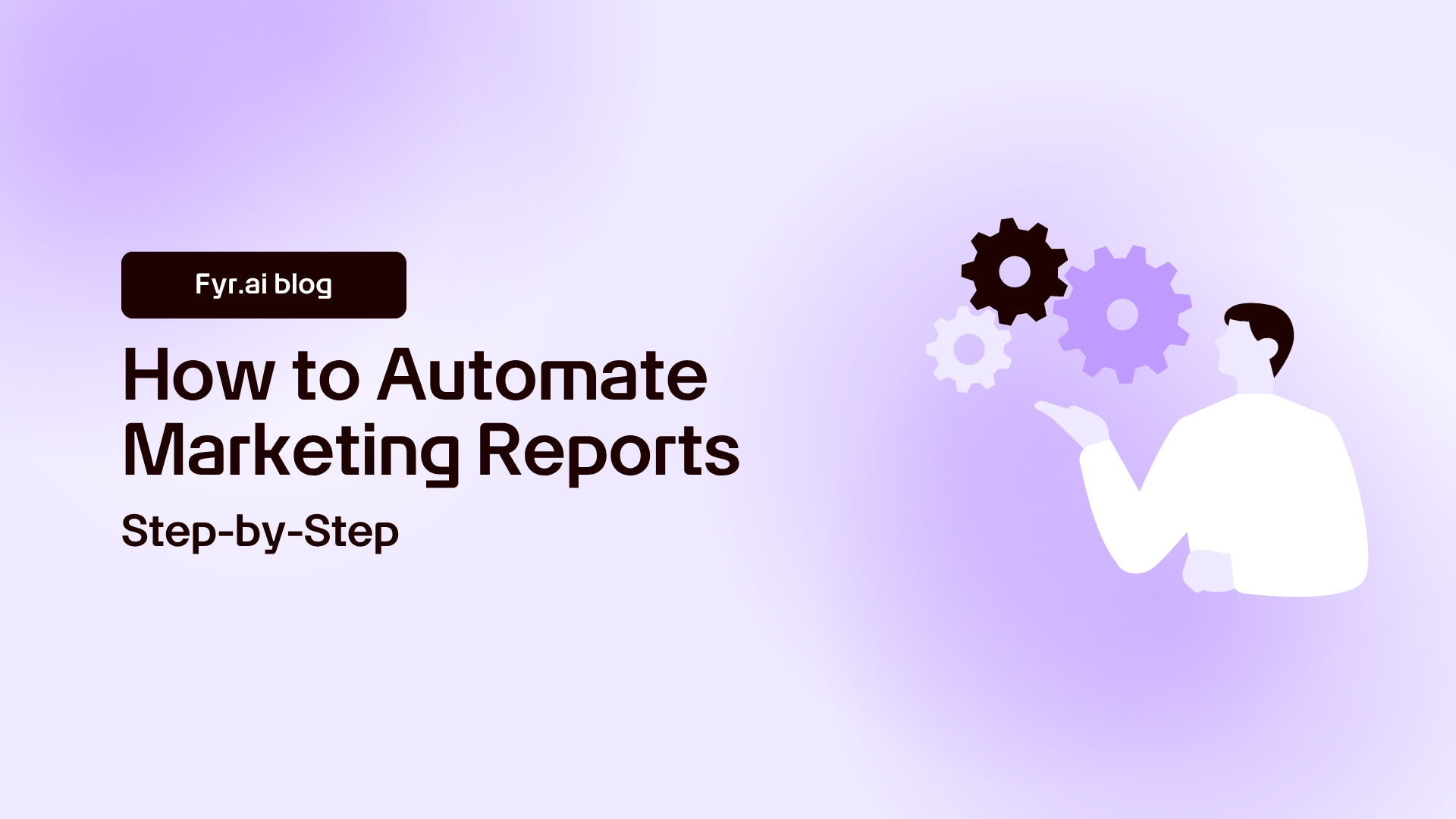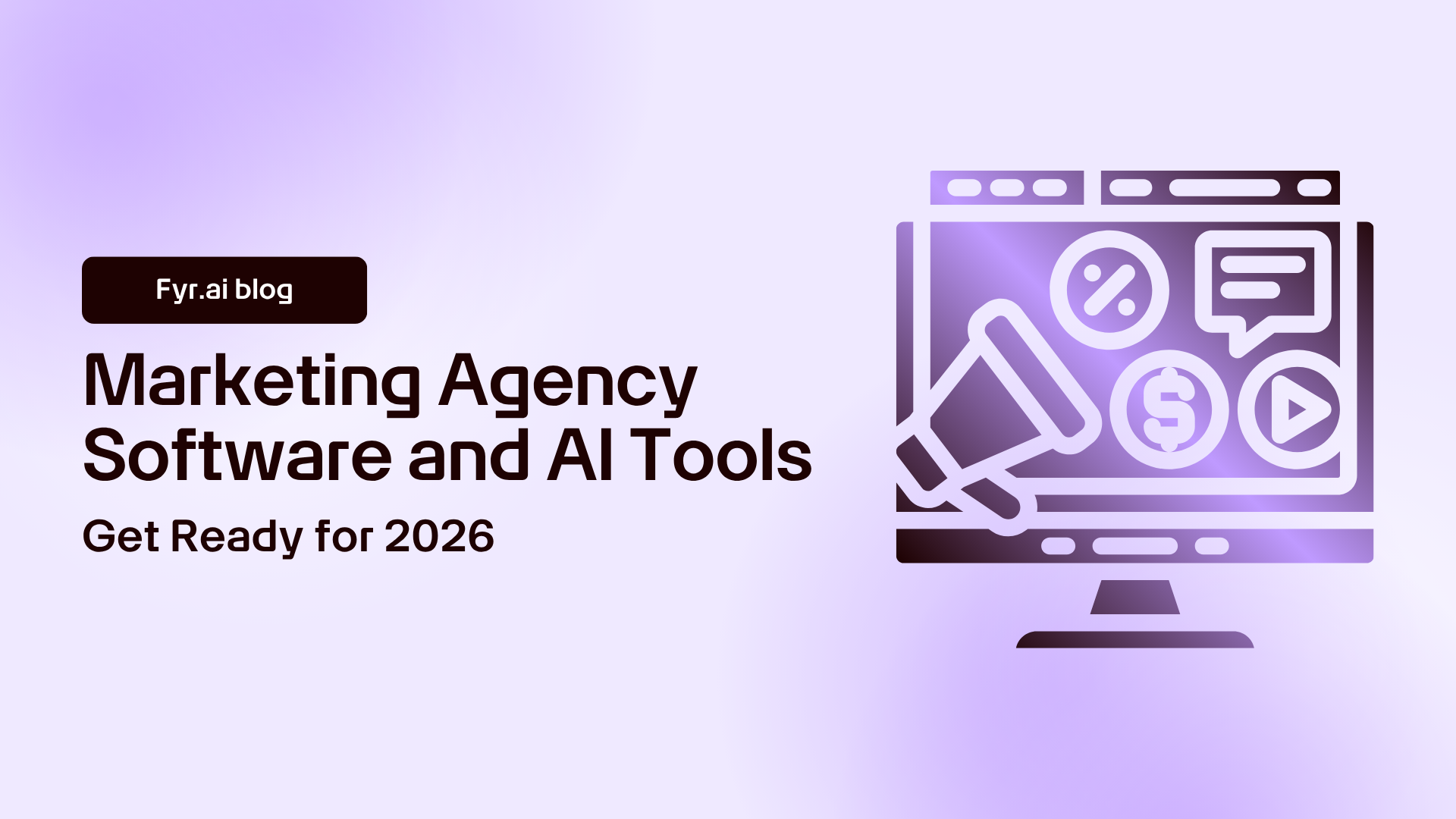You’ve heard it multiple times: marketing is evolving faster than ever. Artificial intelligence, once a futuristic concept, has now become the engine powering modern strategies. Companies that once relied on manual campaign management or gut-feel decision making are being outpaced by those embracing AI-powered martech tools.
By combining data-driven insights, AI algorithms and intuitive dashboards, businesses can focus less on repetitive tasks and more on growth, creativity and customer relationships. This is the promise of Automagic marketing – technology that doesn’t just work, but empowers teams with superhuman efficiency.
In this article, I’ll explore the best tools for Automagic marketing for 2026, spanning content creation, analytics and campaign automation. You’ll discover which martech tools can streamline your workflows, enhance your brand voice, and generate actionable insights that turn strategies into results.
By the end, you’ll understand not just what’s possible with AI in marketing, but how to design a marketing stack that works smarter, not harder.
Table of Contents
Introduction to Artificial Intelligence in Marketing
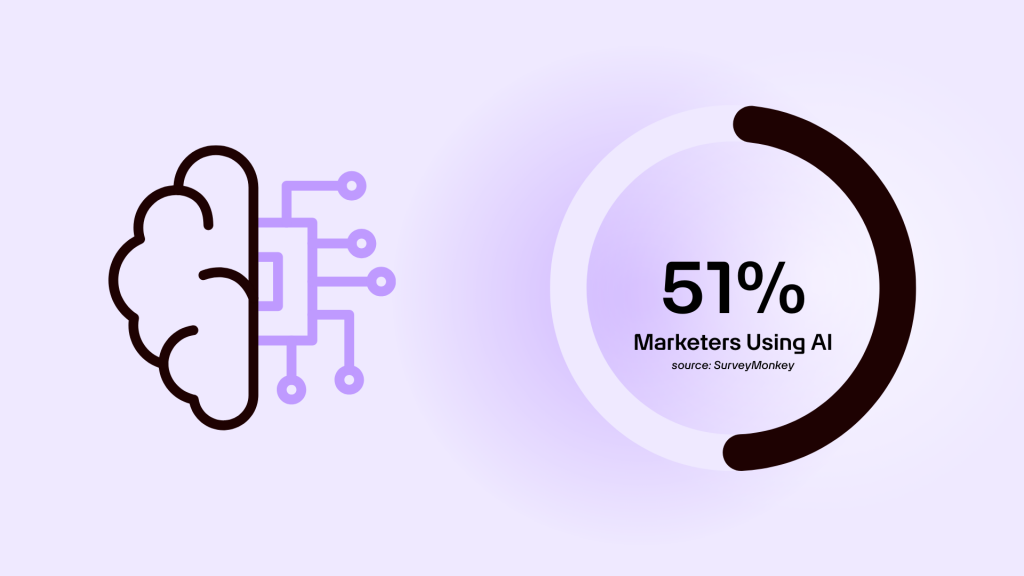
Artificial intelligence has moved beyond hype into daily practice. In fact, a SurveyMonkey research shows that more than 51% of marketers now use AI marketing tools to optimize their content, from email campaigns to search engine optimization. The reason is clear: AI enables marketers to automate tasks, personalize experiences and make decisions at the speed of data.
Some of the biggest breakthroughs include:
-
AI algorithms that analyze customer data in real time, identifying patterns humans might miss.
-
Generative AI that supports the content creation process, producing everything from blog posts to social media posts with speed and scale.
-
Predictive analytics that forecast customer behavior, allowing businesses to allocate budgets with precision.
This transformation is about enabling marketing strategies that were previously impossible. With AI agents acting like virtual assistants, brands can now maintain a consistent brand voice, optimize campaigns for desired outcomes and engage individual customers at scale.
AI is no longer a niche experiment, but it is the foundation of the modern martech landscape, and it will define which businesses thrive in 2026 and beyond.
AI Marketing Tools and Technologies
The vast number of AI tools available today can be overwhelming. From content editing software to campaign management platforms, the challenge is knowing which ones deliver true value. The best AI marketing tools for 2026 fall into three main categories:
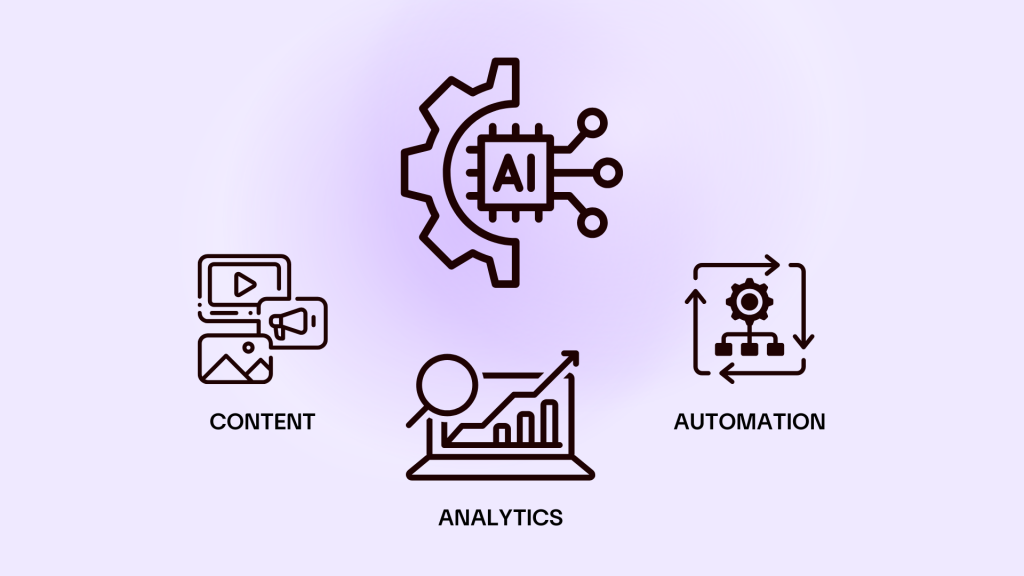
1. Content and Creative Tools
Generative AI has become an amazing tool for brainstorming ideas, creating content, and automating editing tasks. Jasper and copy.ai are leading platforms for AI-generated content, while GrammarlyGO supports content editing and optimization. For design, Canva’s AI suite enables marketers to create visuals and social media posts at scale. Together, these tools streamline the content creation process, letting teams work smarter and faster without compromising quality.
2. Analytics and Performance Platforms
The heart of automagic marketing lies in data. Tools like Fyr, Google Analytics 4, and HubSpot Marketing Hub provide real-time data on campaign performance, customer interactions and website engagement. More advanced platforms such as Tableau integrate predictive analytics, giving marketing leaders the ability to forecast results with precision. These insights empower competitive intelligence and enable marketers to refine content marketing strategies, optimize landing pages and unlock desired outcomes.
3. Automation and Martech Stacks
No modern marketing strategy is complete without marketing automation. Today’s martech stacks integrate customer relationship management, email marketing, and programmatic advertising in one place. The best solutions come with intuitive user interfaces, free versions or free plans for testing, and the flexibility to scale as businesses grow.
💡 Pro TipWhen evaluating new tools, prioritize those that seamlessly connect with your existing martech stack. Integration ensures smoother workflows and reduces the complexity of managing multiple platforms.
In 2026, the most successful companies will not just use martech tools, but they will orchestrate them like instruments in a symphony, creating harmony between technology, creativity and customer experience.
Content Creation and Editing
AI-generated content is becoming increasingly popular, with businesses across industries using AI tools to accelerate production and scale their marketing efforts. What once required large teams and long timelines can now be handled in hours, giving marketers the freedom to focus on strategy and creativity.
The content creation process is increasingly automated thanks to AI-powered platforms that support drafting, content editing and proofreading. These systems help maintain consistency, reduce human error and ensure every asset (from blog articles to social media posts) aligns with brand voice and audience expectations.
Another major advantage is optimization. With AI marketing tools trained on search engine optimization best practices (for example Surfer), businesses can make sure their content isn’t just well-written but also discoverable. By analyzing keywords, audience intent, and competitor gaps, AI enables marketers to fine-tune every piece of content for higher visibility.
💡 Pro Tip
When you're creating the article with AI, make sure it's just a helping hand. These are still just tools and that's why your creation needs a human touch.
Email Marketing and Automation
Email remains one of the most reliable channels for engaging target audiences and in 2025 it is being transformed by AI-powered marketing automation. Businesses are moving beyond batch-and-blast campaigns to deliver highly personalized, timely, and relevant experiences.
With AI marketing tools, email campaigns can now be tailored at scale. By analyzing customer interactions and customer data, platforms generate personalized recommendations, adjust sending times, and optimize subject lines for higher engagement. This ensures that each email feels more like a one-to-one conversation than a generic message.
Brand Voice and Consistency
As marketing becomes increasingly automated, maintaining a strong brand voice is critical. Consistency across social media platforms, landing pages, and marketing campaigns builds trust, reinforces identity and ensures businesses stand out in a crowded martech landscape.
AI-powered tools are helping organizations keep this consistency intact. By using sentiment analysis and natural language processing, these systems can evaluate tone, word choice, and emotional resonance. This allows businesses to refine messaging and ensure that marketing content connects authentically with both potential and individual customers.
At Fyr, we believe that technology should never erase humanity. Instead, Automagic Marketing uses AI to amplify creativity, not replace it. By blending human intuition with AI precision, brands can project a clear, consistent identity while scaling their marketing efforts across channels.
AI Powered Marketing Strategies
In 2025, businesses are no longer asking if they should use AI in marketing, but how. AI-powered marketing strategies are reshaping the way companies design campaigns, optimize customer journeys, and achieve measurable growth.
By combining generative AI, predictive analytics and machine learning, marketers can run highly targeted ad campaigns that adjust in real time. These strategies do more than just automate tasks – they give teams the ability to gain insights and react instantly to changes in customer behavior.
The advantage is clear: organizations that embrace AI-powered strategies can deliver personalized experiences, maximize campaign performance, and secure a competitive edge in the martech landscape. With tools that adapt continuously, businesses can finally move from reactive to proactive marketing, ensuring every effort contributes to the desired outcome.

This is the essence of Automagic Marketing: transforming overwhelming data into clarity, giving teams superpowers to outperform competitors.
AI Adoption and Implementation
Adopting AI in marketing is no longer limited to early adopters or tech giants. In 2025, AI has become a practical necessity across industries, with more companies integrating martech tools into their daily operations.
Implementation starts small, often with a free version of a platform that allows teams to test capabilities before scaling into a martech stack. User-friendly interfaces make onboarding faster, enabling marketers to focus on results rather than technical hurdles.
Once adopted, AI helps automate tasks across the organization, from campaign management to content production. This shift not only saves time but also creates opportunities for marketers to innovate, experiment, and rethink their approach to customer engagement.
The challenge lies in cultural adoption. Teams must learn to trust AI insights, while leadership must invest in training to ensure technology supports people, not the other way around. Companies that strike this balance will be best positioned to thrive in a future where artificial intelligence defines competitiveness.
Actionable Insights and Analytics
Data has always been central to marketing, but raw numbers alone rarely tell the whole story. What businesses need are actionable insights, the kind that reveal patterns, predict outcomes and guide strategy.
AI marketing tools now make this possible with real-time data analysis and dashboards that visualize complex trends in a way that’s easy to act upon. By tracking customer interactions, performance metrics, and competitor benchmarks, AI will help you understand your data, make smarter decisions and faster responses.
One of the most valuable aspects is competitive intelligence. With AI-powered analytics, businesses can monitor shifts in the market, identify new opportunities, and adjust campaigns instantly. This ability to adapt in real time is what sets apart companies that simply collect data from those that truly use it.
At Fyr, we believe data should be empowering, not overwhelming. That’s why our Automagic dashboards simplify complexity, ensuring marketers don’t just measure performance but also understand how to optimize it for the future.
Closing Thoughts: The Future of Automagic Marketing
Marketing has always evolved alongside technology – from print and broadcast to digital and social. But 2025 marks a new chapter where artificial intelligence is no longer just a tool, but a partner in growth.
The companies that thrive will be those that integrate AI not just into isolated campaigns, but across their martech stack. They will enable marketers to focus on creativity, storytelling, and strategy, while automation handles the repetitive tasks.
At Fyr, we see Automagic Marketing as more than a trend. It’s a new standard – one where businesses of all sizes can work smarter, scale faster and unlock possibilities that once felt out of reach. The future isn’t about choosing between people or machines. It’s about combining the best of both to create marketing that feels effortless, efficient and yes – a little bit magical. ✨
FAQ: Automagic Marketing and AI Tools in 2026
What is marketing technology?
Marketing technology or martech, refers to the software and tools that help businesses plan, execute, and measure marketing campaigns. Examples include CRM systems, analytics dashboards, and AI marketing tools that optimize the content creation process.
How is AI used in marketing?
AI is used to automate tasks, personalize messaging, and deliver actionable insights from customer data. From ai-generated content to predictive analytics, it helps marketers design smarter marketing strategies and achieve their desired outcomes.
What are the different types of marketing technology?
The martech landscape covers tools for content marketing, email marketing, campaign management, advertising technology, customer relationship management, and analytics. Together, they form a martech stack that drives efficiency and scalability.
Which is the best AI tool for marketing?
There’s no single answer. The best AI marketing tools depend on business needs. For example, generative AI supports content creation, analytics platforms deliver real-time data, and automation systems streamline CRM and email workflows. Many offer a free version or free plan so companies can test before scaling.
Does AI marketing actually work?
Yes. Studies show that businesses adopting AI-powered marketing strategies see improved campaign performance, lower costs, and stronger customer engagement. By blending human creativity with AI precision, companies consistently outperform traditional approaches.
Ready to Get Superpowers?
Marketing doesn’t have to be complicated. With Automagic Marketing, you gain clarity, speed and confidence. Fyr’s platform combines generative AI, predictive analytics, and a streamlined martech stack into one seamless experience – so you can spend less time chasing metrics and more time driving growth.
We don’t just optimize campaigns – we give your team superpowers.
👉 Book a demo today and see how Automagic Marketing can transform your business. The future of marketing is already here. Let’s build it together.
